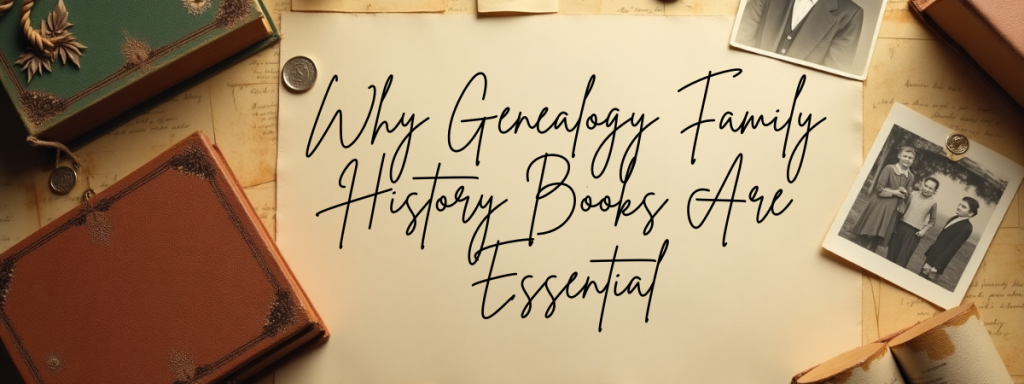In every family, there comes a moment when someone asks, Who were we before this? It’s a question that doesn’t just lead to names and dates. It leads to stories, choices, and moments that shaped who we are today. This is where genealogy family history books come in. Not just as records of ancestry, but as bridges between generations, cultures, and forgotten voices.
If you’ve ever wondered why so many people are drawn to preserving family stories, or why books based on personal lineage continue to resonate across cultures, this post is for you. Whether you’re researching your own roots or simply love to read stories rooted in legacy, the value of documenting heritage cannot be overstated.
What Is a Genealogy Family History Book?
A genealogy family history book goes beyond building a family tree. It transforms personal and ancestral data into a written narrative. These books often weave together interviews, records, letters, memories, and oral histories to tell the story of a family’s journey through time.
Some focus on the facts: birthplaces, occupations, dates. Others focus on lived experience like migration, trauma, resilience, and cultural shifts. Many, like The Tree of Immortality, manage to combine both. They become something more than a book. They become an archive of identity.
Why Heritage Needs Preserving Before It’s Too Late
Every family loses stories.
Sometimes it’s due to silence. Other times, it’s because the people who hold those memories pass away without ever sharing them. Language barriers, migration, war, and displacement can all lead to heritage being scattered or erased.
Writing a family history becomes a way to reclaim that. It gives voice to those who never had the chance to write their own stories. It allows younger generations to understand not only what happened before they were born, but how those events shaped the life they live now.
In cultures affected by colonialism, migration, or forced assimilation, family history books are especially important. They help preserve language, customs, spirituality, and ancestral memory. These are things that official archives rarely capture.
It’s Not Just History. It’s Identity
The urge to understand where we come from is not academic. It’s emotional. A person who knows their roots tends to stand firmer in their present. When you learn about your grandparents’ decisions, your ancestors’ losses, and your community’s journey, you begin to carry their strength with you.
This is one reason why genealogy family history books are essential for diaspora communities. In a country far from home, or born into a culture that blends multiple influences, it becomes harder to hold onto a clear sense of identity. These books become a way to say, We were here. This is who we are.
The Personal Becomes Universal
Every family history, when told honestly, touches something wider. It reflects the time in which people lived. Their beliefs, their struggles, and their small daily victories. What begins as one family’s story often ends up helping readers from entirely different backgrounds see their own reflections.
In The Tree of Immortality, the Gill family’s story is specific: Aryans from central Asia migrating across to southern Asia, into Punjab, converting to Jats, then Jat Sikhs. Migrating to places like Malaysia, Singapore and the UK in search of work. Then in more recent times, relocating to the USA, Canada, Australia and Europe. But the themes are deeply relatable. Generational silence. Cultural loss. Spiritual questions. The gap between tradition and modernity. These themes appear in families around the world, and readers respond because they feel the weight of memory too.
Writing One? Or Thinking About It?
You don’t need to be a professional historian to begin writing your family story. All you need is a sense of curiosity, a bit of courage, and the willingness to listen to elders, to archives, and to your own questions.
Many people begin with notes from a parent or grandparent. Some start with immigration papers, family photographs, or even old letters tucked away in drawers. Over time, the fragments begin to connect. The story starts to take shape.
If you’re considering turning your family research into a book, you’ll find inspiration in other genealogy works. They come in all forms: memoirs, narrative non-fiction, historical reconstructions, or hybrid spiritual reflections.
Why This Genre Is Growing
There’s a quiet movement happening across the world. People are reclaiming their stories. With technology making it easier to access records and self-publish, more individuals are documenting their ancestry in ways that were once only possible for the privileged.
But it’s not just about access. It’s about need. We live in a time where rootlessness and disconnection are common. Social media creates snapshots of the now. Genealogy brings back what came before. It gives us a longer view of time, and a deeper sense of who we really are.
Books Like This Build Legacy, Not Just for You, But for Others
When someone reads a well-crafted family history, they walk away not only knowing something about the writer’s lineage, but also about themselves. That’s the true power of this genre.
Books like The Tree of Immortality don’t just preserve one family’s past. They invite others to reflect, to remember, and to start asking their own questions. Who were we before this? What was lost? And what can still be passed on?
Final Thoughts
If you’re someone who’s ever felt that tug to look back, to understand your grandparents’ lives, to explore your surname’s roots, to trace a line across borders, then you already understand the value of preserving heritage.
Genealogy family history books are not simply about data or legacy. They are about meaning. They remind us that we belong to something larger than ourselves, something shaped long before we were born. And by writing it down, we give that inheritance a voice. One that might echo long after we’re gone.

